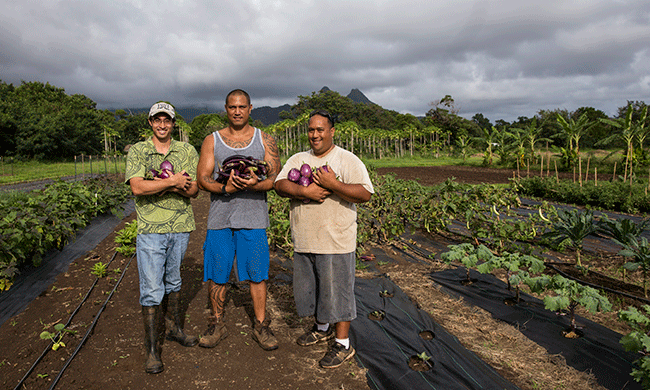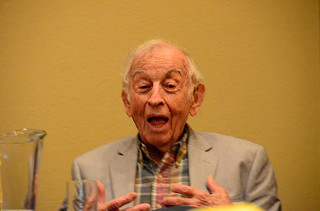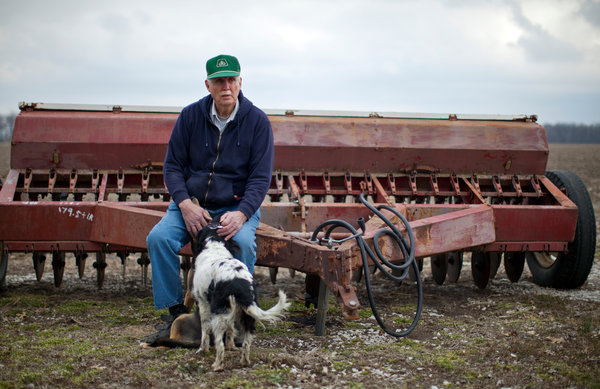topics/sustainability
Bob Dixson, Mayor of Greensburg, Kansas, joins us. Greensburg was destroyed by a tornado on May 4, 2007, three years ago today. After the tornado, the City Council passed a resolution stating that all city buildings would be built to platinum LEED standards, making it the first city in the nation to do so.
This hour we feature two perspectives on transitioning to cleaner sources of energy.
Marc and guests discuss a new farming program that the Baltimore School system is running here in Baltimore. Great food and opportunities are being provided to students for locally grown, organic fruits and vegetables.
Today's guests were:
In the second hour of today's show, Marc spoke with guests about the future of food production and the ability to feed the world organically.
The panel included:
It's time for America to rethink energy. How much energy we use, how we use it, and, most importantly, where it comes from.
On today's show, Marc spoke with several environmental leaders about how the racial make-up of Baltimore City may change or effect the discussion of environmental justice.
Today's studio panel included:
The United States has one of the most progressive environmental justice systems in the world. Theoretically, Americans have access to more information, more options, and more community support in trying to lessen their environmental impact.
Public awareness on the need for becoming more energy efficient and lessening our environmental impact is at an all time high. However, in an economic crisis where many families are struggling to keep their homes and jobs, "going green" just can't be a top priority--or can it?
Having trouble with your tomato plants or experiencing a bug infestation in your rose garden? Noticed something strange about your favorite tree or concerned about your perennials? Marc is joined this hour by gardeners who can take and answer your questions about how to make your garden grow. Today's panel includes:
The first hour of today's show was divided into two segments.
For the first segment, Marc spoke with Daniel Becker of the Safe Climate Campaign, to discuss the three things President Obama could do without Congress to cut emissions now.
Today's show began with another look at the future of journalism. Senator Ben Cardin discussed his bill that would allow newspapers to operate as nonprofits. Then Walter Isaacson, the former Chairman and CEO of CNN and former managing editor of Time, shared his take on the future of news.
The Baltimore area saw two major water main breaks last week. These incidents are just the tip of the iceberg in terms of the crisis in American infrastructure. From structurally unsound bridges to aging sewer systems that dump untreated waste into waterways, we've got a problem that the American Society of Civil Engineers says it will take $2.2 trillion dollars to fix.
In our first hour, we take our weekly look at sustainability issues: in our city, our country, and the rest of the world. Today, we take our first deep look at the economy and its role in sustainability.
In the second hour of today's show, Marc spoke with guests about the future of food production and the ability to feed the world organically.
The panel included:
It's time for America to rethink energy. How much energy we use, how we use it, and, most importantly, where it comes from.
On today's show, Marc spoke with several environmental leaders about how the racial make-up of Baltimore City may change or effect the discussion of environmental justice.
Today's studio panel included:
The United States has one of the most progressive environmental justice systems in the world. Theoretically, Americans have access to more information, more options, and more community support in trying to lessen their environmental impact.
Public awareness on the need for becoming more energy efficient and lessening our environmental impact is at an all time high. However, in an economic crisis where many families are struggling to keep their homes and jobs, "going green" just can't be a top priority--or can it?






